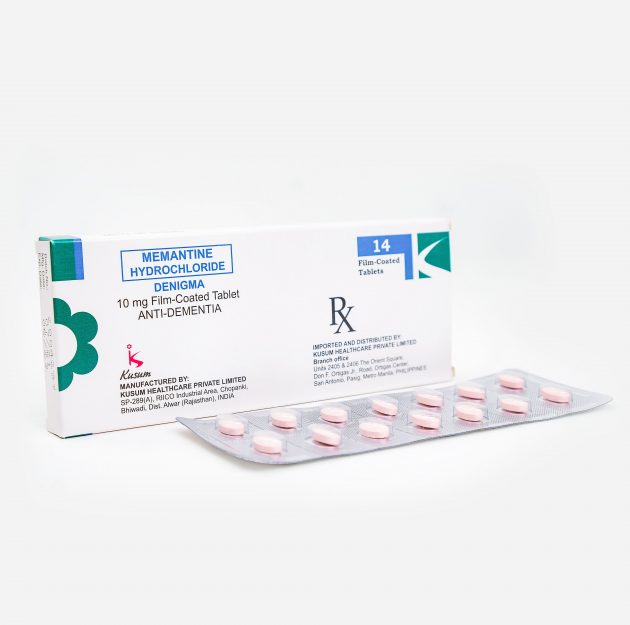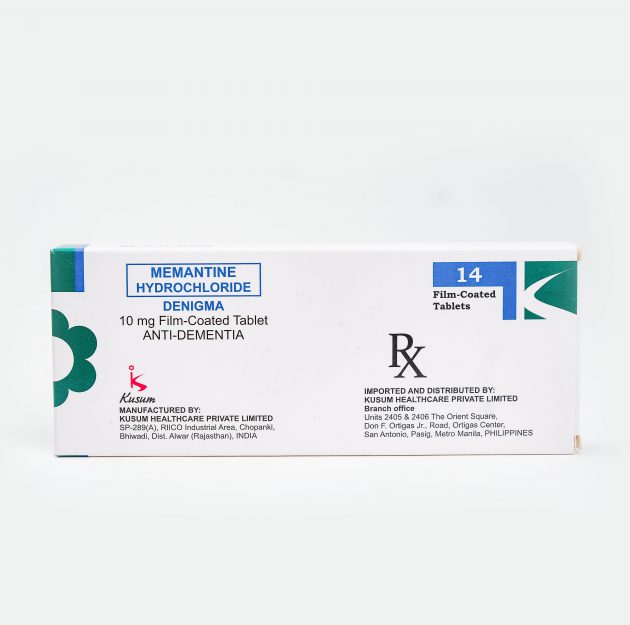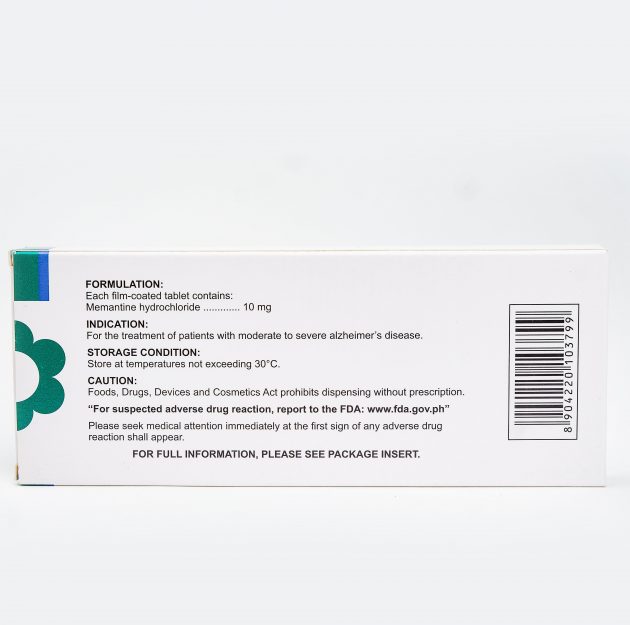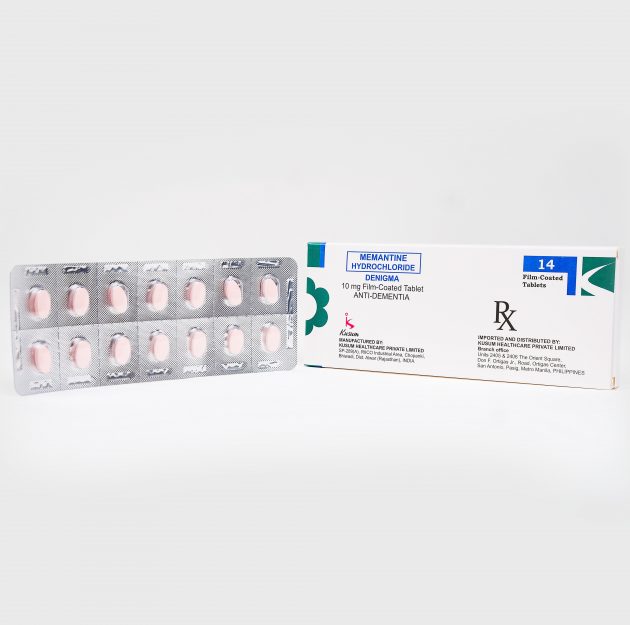Dosage and Administration :
Treatment should be initiated and supervised by a physician experienced in the diagnosis and treatment of Alzheimer’s dementia. Therapy should only be started if a caregiver is available who will regularly monitor the intake of the medicinal product by the patient. Diagnosis should be made according to current guidelines. The tolerance and dosing of memantine should be reassessed on a regular basis, preferably within three months after start of treatment. Thereafter, the clinical benefit of memantine and the patient’s tolerance of treatment should be reassessed on a regular basis according to current clinical guidelines. Maintenance treatment can be continued for as long as a therapeutic benefit is favourable and the patient tolerates treatment with memantine. Discontinuation of memantine should be considered when evidence of a therapeutic effect is no longer present or if the patient does not tolerate treatment.
Posology
Adults:
Dose titration
The maximum daily dose is 20 mg per day. In order to reduce the risk of undesirable effects, the maintenance dose is achieved by upward titration of 5 mg per week over the first 3 weeks as follows.
To facilitate the up-titration other tablet strengths are available.
Week 1 (day 1-7):
The patient should take 5 mg film-coated tablet per day for 7 days.
Week 2 (day 8-14):
The patient should take one 10 mg film-coated tablet (10 mg) per day for 7 days.
Week 3 (day 15-21):
The patient should take one and a half 10 mg film-coated tablets (15 mg) per day for 7 days.
From Week 4 on:
The patient should take two 10 mg film-coated tablets (20 mg) per day.
Maintenance dose
The recommended maintenance dose is 20 mg per day.
Elderly: On the basis of the clinical studies, the recommended dose for patients over the age of 65 years is 20 mg per day (two 10 mg film-coated tablets once a day) as described above.
Children and adolescents: Memantine hydrochloride Tablets is not recommended for use in children below 18 years due to a lack of data on safety and efficacy.
Renal impairment: In patients with mildly impaired renal function (creatinine clearance 50 − 80 ml/min) no dose adjustment is required. In patients with moderate renal impairment (creatinine clearance 30 – 49 ml/min) daily dose should be 10 mg per day. If tolerated well after at least 7 days of
treatment, the dose could be increased up to 20 mg/day according to standard titration scheme. In patients with severe renal impairment (creatinine clearance 5 – 29 ml/min) daily dose should be 10 mg per day.
Hepatic impairment: In patients with mild or moderate hepatic impaired function (Child-Pugh A and Child-Pugh B), no dose adjustment is needed.
No data on the use of memantine in patients with severe hepatic impairment are available. Administration of memantine is not recommended in patients with severe hepatic impairment.
Method of administration
Memantine hydrochloride tablets should be administered once a day and should be taken at the same time every day. The film-coated tablets can
be taken with or without food or as prescribed by physician.









